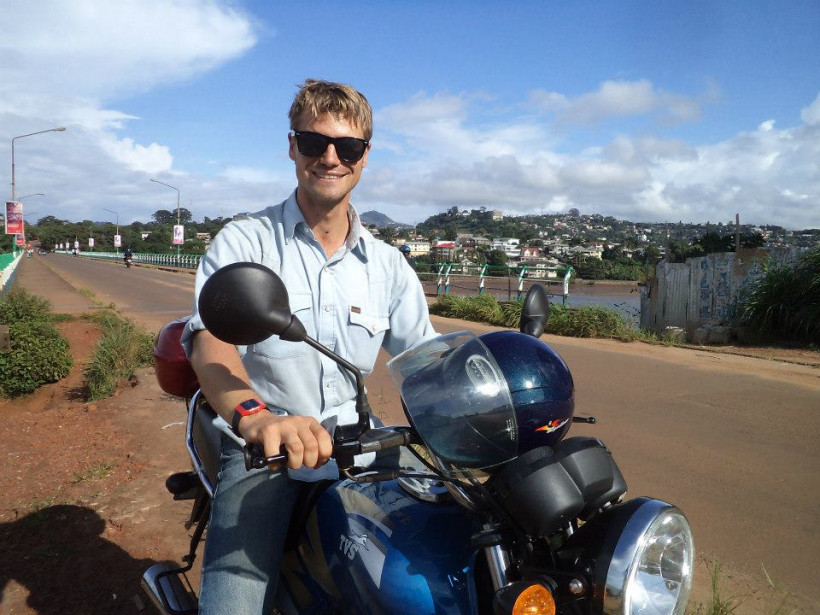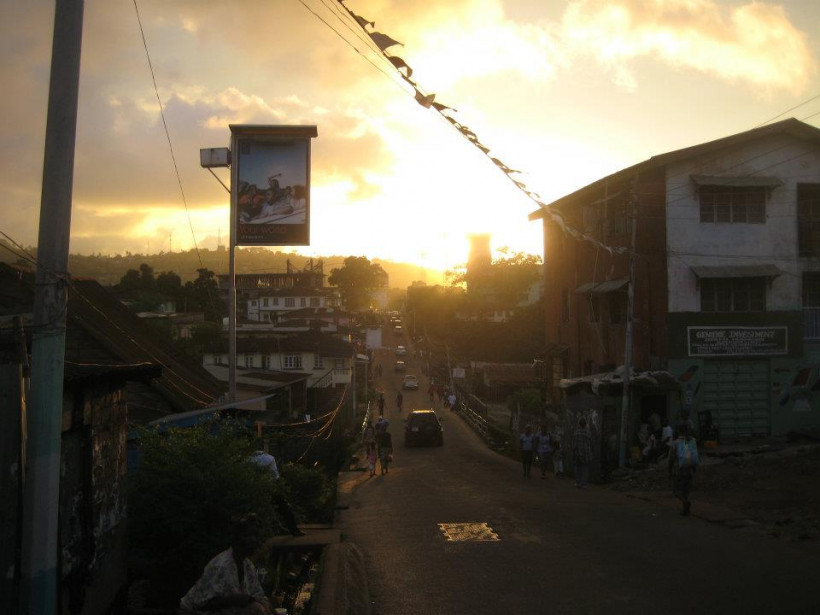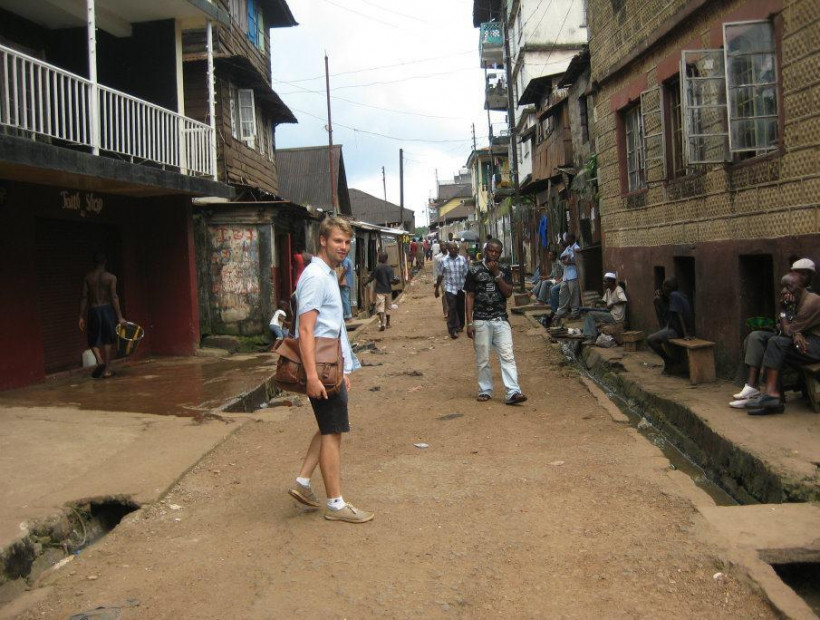So You Want to Report Overseas? Here Are 11 Tips on Freelancing Abroad
Freelance journalist and former features editor Damon van der Linde stopped by his old stomping grounds, The Link office, to give advice about reporting overseas. Here’s a list of his top 11 tips that he compiled for his blog.
Last Friday, I stopped by the place where I got my start as a journalist — The Link student newspaper at Concordia University — to give a talk on how to freelance overseas.
Being back at the student paper made me feel grateful for all the people who have helped me along the way and reinforce the importance of trying to share a bit of what I have learned.
In brief, here are my 11 tips for freelancing overseas.
1) Choose the right location
Sure, being based out of Nairobi or Johannesburg will mean there’s more international news to cover, but it also means a lot of competition with other journalists.
When I was based in Freetown, Sierra Leone, I was one of only four journalists in the entire country who were regularly reporting for international news outlets. You might not be making the headlines every day, but there was certainly no shortage of interesting stories that no one else was covering.
2) Timing is important
While there is always something to report on no matter where you go, it can make a difference when you travel.
I began planning my trip to Mali sometime in October 2012. I would finish my contract in Sierra Leone, take a couple months to prepare, and land sometime in February 2013.
I assumed that the situation would stay the same for quite some time — a standoff between the Malian government in the south and rebel forces in the north.
Then, on January 11, 2013, France began military operations in Mali. This meant every major news network sent their correspondents in and I had to get there fast so I could still find places to sell my work. So much for my plan.
3) Learn different media — print, radio, video and photo
Though I started off working exclusively in print, I have come to appreciate the importance of versatility when working overseas as a freelancer.
There may not always be enough work just with newspapers and magazines, so being able to do radio and television just creates that many more places to sell your reporting.
4) Learn the language
I have mostly worked overseas Sub-Saharan African countries where the official languages were English and French. Not that everybody would speak the official language, but I’m sure it would be easier than reporting from, say, China, without speaking Mandarin.
5) News isn’t always there but there are always features
These days it’s rare that something happening in Sierra Leone is going to make the lead story on BBC World News, but that isn’t a reason not to go.
Stories about interesting people doing interesting things are everywhere and media outlets will almost always take them.
People relate to stories about people and they might just be more interesting than whatever is on the front page.
6) Know the value of “being there.”
If a media outlet could just do the story from their headquarters by making a few calls, they should probably just save some money in their freelance budget.
What you can bring being based in a different location — besides knowing more about the place than your editors — is that you have the privilege of “bringing” your audience there with descriptions, sounds, visuals and voices.
I think this piece I did about a concert pianist playing in a Sierra Leone prison is a pretty good example of this. No one else could have possibly made it work as well without actually being in Freetown Central Prison while it was happening.
7) Go niche — interests and places
Not everything has to run on a world report or in the International section of a daily newspaper. Find a niche as the hook and pitch your stories.
For instance, I met some people from the Danish chapter of Engineers Without Borders, so I wrote a story about their work for the Copenhagen Post.
I was fascinated with the story of Sierra Leone’s Nova Scotia Settlers, so I wrote about the anniversary of their arrival for the Halifax Chronicle Herald.
8) Market yourself and eventually the work will come to you
If you stay in one place long enough and build a bit of a reputation, sooner or later, people may start offering you work.
Maybe they want you to cover an event, maybe they want photos or videos for a project. I even got a bit of work as a fixer for a film.
Having a website helps, as well as many connections in and outside the country.
9) Work with other journalists
When I wasn’t freelancing, I was working with an organization called Journalists for Human Rights, teaching at a local radio station.
The contacts I made there were incredible. Not only did I get help with contacts, but the people I worked with knew so much more than I did about the country’s politics, culture and history.
Other foreign journalists can also be a big help. I have found that generally, the spirit is more cooperative than competitive, especially when you feel like there is more than enough work to go around.
I owe quite a bit to other journalists who have passed on work to me because they didn’t have time to do it themselves. Everybody wins.
10) Know the risks
Even places that are not involved in conflicts can be dangerous if you’re not careful. Yes, street crime and civil unrest can be a risk, but road accidents and disease are probably more of a threat in a lot of countries.
As a freelancer, you are probably not going to have too much support from the media outlets you work for, so it’s important to take care of yourself. Get insurance, learn a bit of first aid and get to know your comfort level. It’s probably better to be overly cautious at first before you get a truer sense of what is an acceptable amount of risk to take.
For those planning to work in conflict zones (though not exclusively), the Rory Peck Trust offers bursaries to freelancers that allow journalists to take hostile environment training at an enormously discounted rate.
11) Be confident — you just might be the right person to cover the story
As a freelancer, it’s tempting to start small and not immediately pitch the bigger media outlets you really want to work with. Of course, you may have to prove yourself before you get a job as an AP correspondent.
That doesn’t mean that you shouldn’t aim big. Even if your work isn’t taken by everyone, at least the editors will know you are out there, and if something big happens you might just be in the right place at the right time.
Good luck and stay safe!











